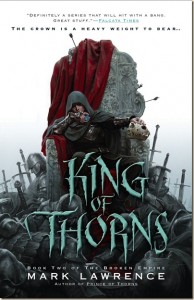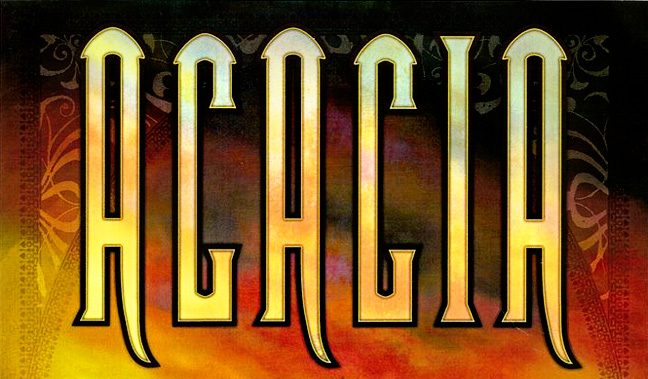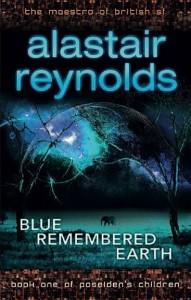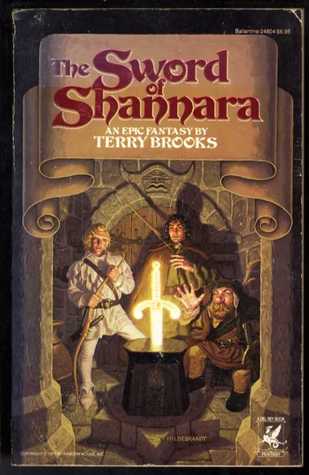
King of Thorns
By Mark Lawrence
Hardcover
Pages: 464 pages
Publisher: Ace Hardcover
Release Date: 08/02/12
ISBN: 1937007472
Prince of Thorns, Mark Lawrence’s 2011 debut novel, was not well received in all corners, occasionally offending reader sensibilities. Jorg, the protagonist and narrator throughout the series, is a self interested often bloodthirsty teenager who’s ruled equally by his emotions and lack thereof. Those hoping for a redemptive tale, or an ultimately apologetic tone from the author, found themselves woefully bereft. Deeply disturbing, and written with a haunting elegance, I called it the best fantasy debut of 2011.
Jorg, no longer a wandering prince in search of revenge, has taken a throne. Not his father’s or the Empire’s, but it’s a start. The path he carved has made him visible to those who share his lust for power, and now a six nation army marches toward his gates, led by a man far more suited to rule than he. An honorable man would lay down his sword and join the fledgling Empire in peace, leaving his kingdom whole and his people alive. That doesn’t sound like Jorg, does it?
Read More »




